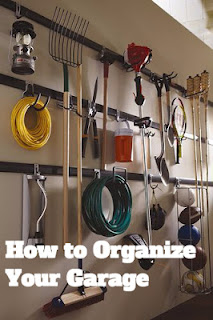Happy New Year! This is the time of year that we begin to reflect on the past year and plan for the new year ahead. What are your goals for the upcoming months? Some of the most popular include eating less and exercising more, spending less and saving more … and of course, getting organized!
The truth is that most resolutions are forgotten before January is over. However, this year we want to help you accomplish all of your goals.
The truth is that most resolutions are forgotten before January is over. However, this year we want to help you accomplish all of your goals.
That's why we invite you to join us in the
Simplify Challenge, a 40-day detox program to rid your life of excess
clutter so that you can spend more time living life to the fullest.
As with any challenge, this won't be easy, but we promise to provide
you with the tools and support to be successful by providing you with
a step-by-step guide to organizing your entire home. We'll send you
one email per week, each of which will focus on a different area of
your home. Don't worry if you fall behind schedule or become
overwhelmed – Simply contact
us to get help from one of our
professional organizers to guarantee your success.
To kick things off, we're going
spend this first week focusing on cleaning up one of the most
forgotten areas of your home – The garage. But before you get
started on that, make sure to:
• PUT YOUR
DECORATIONS AWAY- If you haven't already done so, put away all
holiday decorations so that you're ready to start organizing. As you
find items you no longer love and enjoy in your decorations, donate
them instead of wasting space storing them yet another year.
• PURCHASE SUPPLIES -
It's hard to know what you'll need until you get into the project,
but it's always helpful to purchase some general organizing
containers in a variety of sizes so that you have what you need on
hand. Make sure to keep your receipt so you can return what you don't
use.
• GET SUPPORT -
Follow us on social media to find others following this program. That
way, you can give each other encouragement and support! You can post
photos and comment on our Facebook page, and on Twitter using
the hashtag #SimplifyIn40Days.
Once you've taken care of these
preliminary steps, you're ready to start de-cluttering and organizing
your garage! Here are a few steps to help you tackle this cumbersome
task:
• PURGE - Pull
anything you no longer need out onto the driveway. These items can be
sold or donated. If they're too large to carry to the donation
center, call Salvation Army or a donation center in your area that
offers pick up services.
• ORGANIZE - Now that
you've pared everything down to the essentials, it's time to
organize. It's best to pick up everything off of the floor, so you
may want to install some shelves, hooks or other helpful organizing
tools. Put items into categories such as sports, tools, auto, etc.
Place small items like nails and screws in labeled containers with
individual compartments. Holiday decorations can also be stored in
plastic tubs that are clearly labeled. As you sort through items,
continue purging items you no longer need.
• MAINTAIN - Always
make sure items get put back in their designated spot after you use
them.
After you've finally
met your organizing goals in this difficult area, pull in your car
and enjoy your now-spacious garage! Also, as you're working this
week, don't forget to take a break. You'll need to keep your energy
up for next week's tough to tackle project – The kitchen! And
remember, if you feel overwhelmed with any tasks, please contact us
to assist you. We're always ready to help.
Don't forget to post
photos of your clean garage on Twitter using the hashtag
#SimplifyIn40Days, and on our Facebook
page.
Until next week, happy organizing!
















